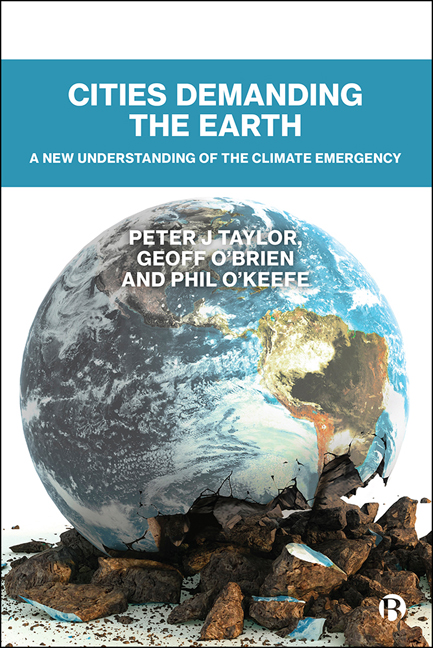Book contents
- Frontmatter
- Dedication
- Contents
- List of Tables and Figures
- About the Authors
- Preface
- 1 Declarations: Root and Branch Unthinking
- 2 Alternate: Jane Jacobs’ legacy
- 3 Inside Out: Fourteen Antitheses Authenticating Cities
- 4 Reset: Anthropogenic Climate Change is Urban, not Modern
- 5 Action: Can We Stop Terminal Consumption?
- References
- Appendix: Primer on Climate Change Policy
- Index
3 - Inside Out: Fourteen Antitheses Authenticating Cities
Published online by Cambridge University Press: 19 March 2021
- Frontmatter
- Dedication
- Contents
- List of Tables and Figures
- About the Authors
- Preface
- 1 Declarations: Root and Branch Unthinking
- 2 Alternate: Jane Jacobs’ legacy
- 3 Inside Out: Fourteen Antitheses Authenticating Cities
- 4 Reset: Anthropogenic Climate Change is Urban, not Modern
- 5 Action: Can We Stop Terminal Consumption?
- References
- Appendix: Primer on Climate Change Policy
- Index
Summary
Introduction: unthinking a thoroughly modern discourse
Without a sustained input from a critical social science, climate change science and policy-making have been condemned to being thoroughly modern. Whereas future scenarios – posited, projected or predicted – take humanity into uncharted waters (literally for many!), mainstream thinking about how we got into this predicament and how we might get out of it have been severely constrained by an embedded modern mindscape. Hence the need for a dose of Wallerstein's (1991) ‘unthinking’:
I believe we need to “unthink” nineteenth-century social science, because many of its presumptions – which in my view are misleading and constrictive – still have far too strong a hold on our mentalities. These presumptions, once considered liberating of the spirit, serve today as the central intellectual barrier to useful analysis of the social world. (Wallerstein, 1991: 1)
Our attempt at loosening these constraints involves confronting conventional modern theses on the framing of human activities in time (chronology) and space (chorography) with plausible antitheses, thereby pointing towards a different understanding of the ‘anthropo’ in anthropogenic climate change. For chronology this means developing a ‘trans-modern’ approach that brings the ‘pre-modern’ into play in order to understand the possibilities of a ‘post-modern’. The result is a break from the modern progress myth of humanity moving ever forward and upwards with its concomitant faith in technology to deliver a safe future. For chorography this means thinking outside the mosaic world created by nation-states that frame modern actions, economic and cultural, as well as political. Thus we break with modern state pre-eminence and its concomitant faith in good governments delivering a safe future. We view both dimensions of conventional thinking – progress/technology and state/policy – to be severely problematic: modern sinks dragging us into an abyss.
Our critical concerns are overtly manifest in the mainstream of climate science and policy-making, as represented by the IPCC and UN Climate Change Conferences (known as COP from ‘Conference of the Parties’ to the 1992 UNFCCC; the meeting in Paris in 2015 was COP 21) respectively. Quite overtly, these two remarkable global institutions epitomise state framing in both the science and policy-making.
- Type
- Chapter
- Information
- Cities Demanding the EarthA New Understanding of the Climate Emergency, pp. 45 - 70Publisher: Bristol University PressPrint publication year: 2020



